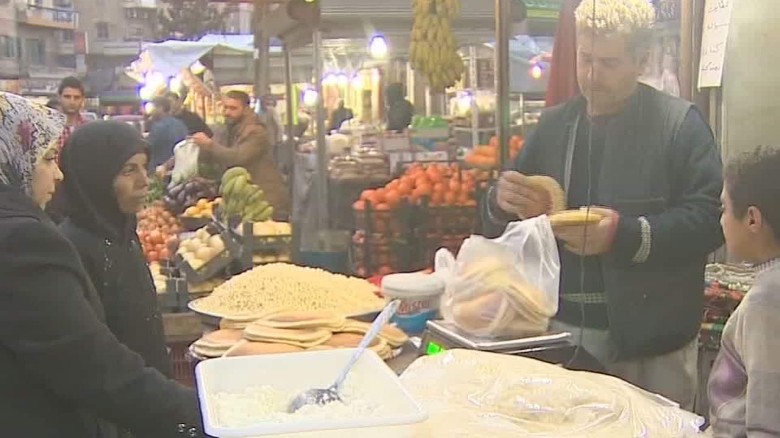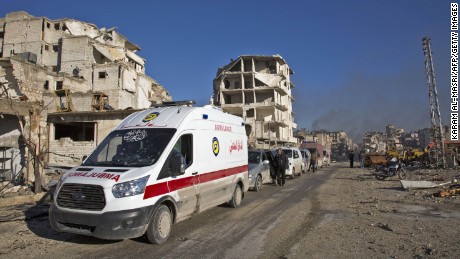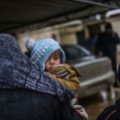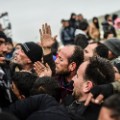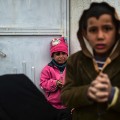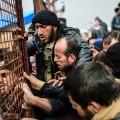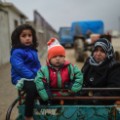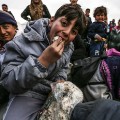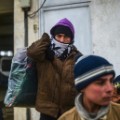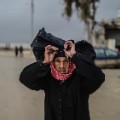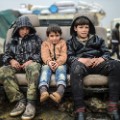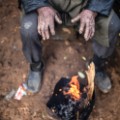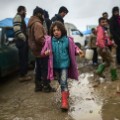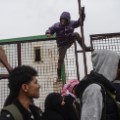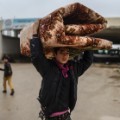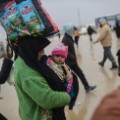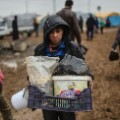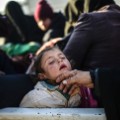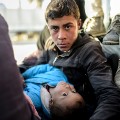Story highlights
- CNN visits Aleppo, a key battleground city in Syria's civil war
- Shelling pounds the city daily and electricity is scarce
Aleppo, Syria (CNN)Aleppo is a city on edge. Shelling pounds the key battleground daily, an unrelenting and terrifying reminder of Syria's five-year civil war.
Earlier this month, President Bashar al-Assad's regime cut off access to the main road from Aleppo to the Turkish border, in turn hampering any movement by rebels fighting his government but also NGOs who are trying to bring supplies to the city's beleaguered populace.
It's estimated some 320,000 people still live, or subsist, in the city under continual bombardment. Residents are suffering in many ways. They are hungry. There's a shortage of fuel. And getting out has become as risky as staying.
But this week, as CNN correspondent Frederik Pleitgen discovered, many in the government-controlled portions of Aleppo are carrying on. Families are going to the market, buying fresh fruit, bread and other items not far from the war's front line. Despite a relatively calm scene, some told CNN they fear what is becoming of one of the country's largest cities.
"I believe we already endured about 80% of the hardship and I hope the remaining 20% will end soon," one man told Pleitgen.
Another acknowledged the "very tough" conditions inside the city, but said "we are steadfast and we believe the power will be on the correct side."
In one of the main areas of the city under control of the Syrian government, electricity is largely provided by generators.
The Russians and Iranians are helping Assad's forces, going after a coalition of rebels in the eastern part of the city.
The Syrian Observatory for Human Rights said that airstrikes hit several villages on Sunday.
Beyond the humanitarian catastrophe, the plight of Aleppo symbolizes the rapid transformation of the Syrian battlefield since the regime, Iran and Russia came together. For much of 2015, Assad's forces were on the defensive, as rebel groups consolidated and took major towns in Idlib, the Aleppo countryside and began to attack regime strongholds in Latakia.
The Institute for the Study of War says a successful government offensive around Aleppo would "shatter opposition morale, fundamentally challenge Turkish strategic ambitions and deny the opposition its most valuable bargaining chip before the international community."
Rebel groups have made desperate appeals for help in defending the city. But because they are notoriously fractious, they are now declaring alliances in a bid to maintain strength.
But no matter how united they are, they aren't a match for the regime and its partners. The rebels don't have planes, or T-90 tanks or other means of hardcore warfare they're facing.
Senior rebel commanders have been killed in Homs, Idlib and Aleppo provinces.
Refugees flee
Thousands of Syrians who have been able to flee have been stopped at the Turkish border, CNN's Arwa Damon reported this week. Turkish authorities continue to insist they have an open door policy, but that doesn't seem to be the case.
Turkish authorities said the refugees are being provided for on the Syrian side, and don't see any need to allow them to cross into Turkey. One Syrian, Saleh, said refugees didn't come come this far to get stuck at the border.
"We did not come here to get tents. We do not need food or water," he said. "We want to get through and provide security for our children."
Saleh has five children. His brother has six. The 11 children walked alongside the adults more than 6 miles in the middle of the night, Saleh told Damon.
"Each time they would cry, we would have to shush them," he said. "We got shot at. We had to hide in the olive groves," he said.
Like many of the others, Saleh has already been displaced multiple times by Syria's relentless violence.

